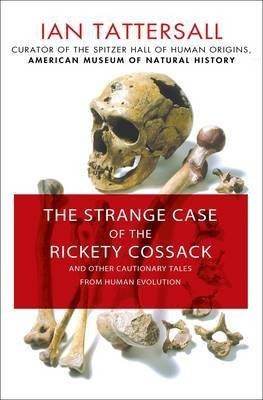Google Books previews are unavailable because you have chosen to turn off third party cookies for enhanced content. Visit our cookies page to review your cookie settings.
The Strange Case of the Rickety Cossack (Hardback)
Imprint: Palgrave
Pages: 256
ISBN: 9781137278890
Published: 9th June 2015
Script Academic & Professional
Pages: 256
ISBN: 9781137278890
Published: 9th June 2015
Script Academic & Professional
You'll be £7.95 closer to your next £10.00 credit when you purchase The Strange Case of the Rickety Cossack. What's this?
+£4.99 UK Delivery or free UK delivery if order is over £40
(click here for international delivery rates)
Need a currency converter? Check XE.com for live rates
(click here for international delivery rates)
Need a currency converter? Check XE.com for live rates
In his new book human paleoanthropologist Ian Tattersall argues that a long tradition of "human exceptionalism" in paleoanthropology has distorted the picture of human evolution. Drawing partly on his own career - from young scientist in awe of his elders to crotchety elder statesman - Tattersall offers an idiosyncratic look at the competitive world of paleoanthropology, beginning with Charles Darwin 150 years ago, and continuing through the Leakey dynasty in Africa, and concluding with the latest astonishing findings in the Caucasus. The book's title refers to the 1856 discovery of a clearly very old skull cap in Germany's Neander Valley. The possessor had a brain as large as a modern human, but a heavy low braincase with a prominent brow ridge. Scientists tried hard to explain away the inconvenient possibility that this was not actually our direct relative. One extreme interpretation suggested that the preserved leg bones were curved by both rickets, and by a life on horseback. The pain of the unfortunate individual's affliction had caused him to chronically furrow his brow in agony, leading to the excessive development of bone above the eye sockets. The subsequent history of human evolutionary studies is full of similarly fanciful interpretations. With tact and humour, Tattersall concludes that we are not the perfected products of natural processes, but instead the result of substantial doses of random happenstance.
Other titles in Palgrave...










